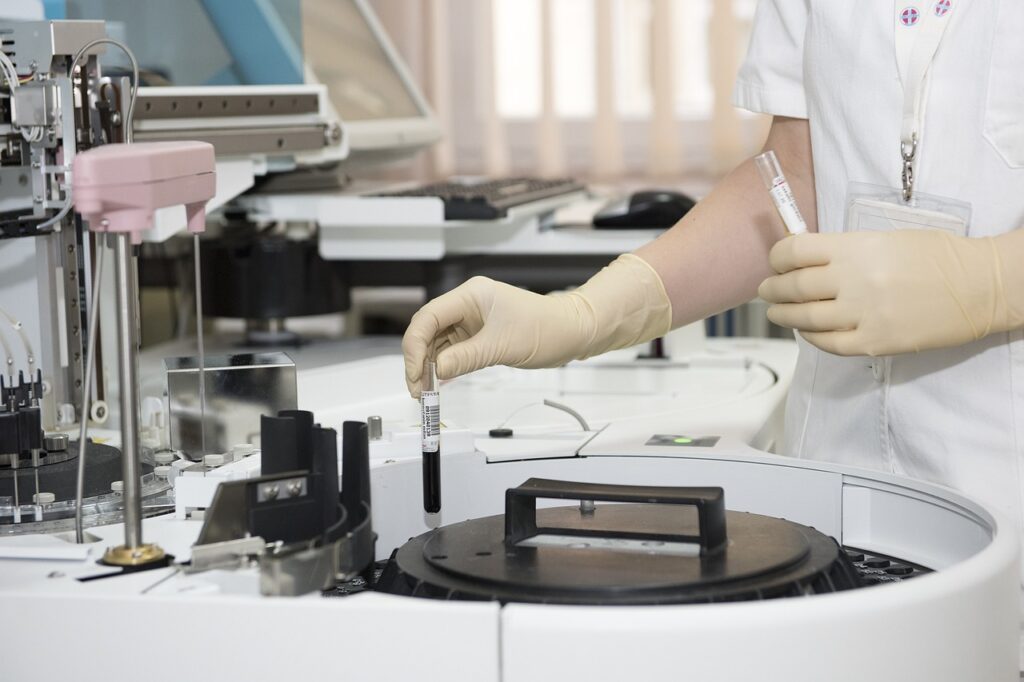Nanomedicine, an innovative field blending nanotechnology with medicine, is transforming how we diagnose, treat, and understand various diseases. By operating at a nanoscale level, nanomedicine aims to create medical tools and techniques that are more precise, efficient, and capable of tackling diseases at their source. In this article, we’ll explore what is nanomedicine, its applications, and its significant impact on healthcare, including the role of magnetic nanoparticles in cancer diagnostics.
What is Nanomedicine?
Nanomedicine refers to the use of nanotechnology in medical applications, particularly in diagnosing, treating, and preventing diseases. Essentially, nanomedicine involves designing and employing nanoparticles, which are minute materials at the scale of one-billionth of a meter, to interact with biological molecules and cells. This precise interaction allows for targeted therapeutic strategies that can treat diseases more effectively than conventional methods.
The promise of nanomedicine lies in its capacity to address complex medical issues, from cancer to cardiovascular diseases. Nanoparticles, due to their tiny size, can penetrate cells and tissues more easily, delivering drugs directly to affected areas while reducing side effects on healthy tissues. Researchers and healthcare professionals envision a future where nanomedicine enables minimally invasive treatments, early disease detection, and personalized patient care.
Applications of Nanomedicine in Healthcare
The scope of nanomedicine is extensive, covering a range of applications across various fields:
1. Drug Delivery: One of the most significant applications is in targeted drug delivery, where nanoparticles transport drugs to specific cells, tissues, or organs. This targeted approach not only maximizes drug efficacy but also minimizes potential side effects.
2. Diagnostics: Nanomedicine allows for early diagnosis through the use of nanoparticles that detect disease markers in the body. This early detection is vital for treating conditions like cancer, where timely intervention is crucial.
3. Regenerative Medicine: Nanomedicine also plays a role in tissue engineering and regenerative medicine, helping to repair or replace damaged tissues and organs. This opens possibilities for treating conditions that require tissue repair or organ transplants.
Magnetic Nanoparticles in Cancer Diagnostics
Among the many advancements in nanomedicine, the use of magnetic nanoparticles in cancer diagnostics stands out as a breakthrough technology. Magnetic nanoparticles are engineered materials that, due to their magnetic properties, can be guided to specific areas within the body using magnetic fields. This feature makes them exceptionally useful in diagnosing cancer.
Magnetic nanoparticles have revolutionized imaging techniques, enabling more precise and accurate cancer diagnosis. When used in magnetic resonance imaging (MRI), these nanoparticles enhance the contrast of the images, making it easier to detect even small tumors. Additionally, because they can be directed to accumulate around cancer cells, they help in distinguishing between cancerous and healthy tissues. This targeted diagnostic approach not only improves accuracy but also aids in earlier and more effective treatment planning.
Benefits and Future of Nanomedicine
Nanomedicine brings a host of advantages over conventional medical treatments and diagnostics. Some of these benefits include:
Precision Targeting: Nanomedicine enables treatments to be directed specifically to affected areas, minimizing the impact on healthy tissues.
Lower Dosages: Targeted delivery often requires smaller doses of drugs, reducing side effects and making treatments more affordable.
Earlier Diagnosis: Nanoparticles enable disease markers to be detected sooner than traditional methods, allowing for timely intervention.
Challenges in Nanomedicine Development
Despite its immense potential, nanomedicine faces challenges, including ethical and regulatory concerns. The small size and unique behavior of nanoparticles make it necessary to assess their long-term safety and potential side effects on the human body. Regulatory authorities are working to develop guidelines to ensure the safety and effectiveness of nanomedicine before it becomes widely available.
Conclusion
Nanomedicine is ushering in a new era in healthcare, promising targeted treatments, early diagnostics, and innovative solutions for complex diseases. With ongoing research into what nanomedicine is and the role of technologies like magnetic nanoparticles in cancer diagnostics, we are only beginning to scratch the surface of what this field can achieve. As advancements continue, nanomedicine holds the potential to transform healthcare and improve patient outcomes across the globe.



